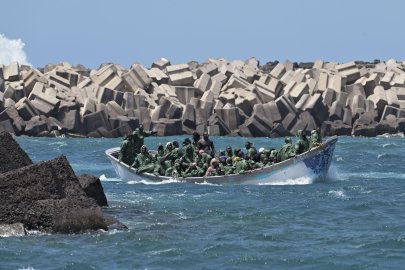Spain Sees Surge in Risky 2,000 km Sea Journeys by Migrants
The recent surge in risky sea journeys by migrants attempting to reach the Canary Islands from the African coast has raised significant concerns regarding immigration policy and the safety of these individuals. As they undertake perilous voyages, often exceeding 2,000 kilometers, migrants are exposing themselves to various dangers, including overcrowded and unseaworthy vessels.
Current Trends in Migration to Spain
In recent months, Spain has experienced an alarming increase in the number of migrants arriving on its shores. The Canary Islands have become a focal point for those fleeing difficult circumstances in their home countries, primarily from regions such as North Africa and Sub-Saharan Africa.
Key Factors Contributing to the Surge:
The challenging conditions faced by many migrants compel them to undertake dangerous sea routes, often risking their lives in search of a more secure future.
Risks Associated with Sea Journeys
The journey to the Canary Islands is fraught with peril. Many migrants embark on overcrowded boats that are ill-equipped for the treacherous waters of the Atlantic Ocean. This has led to an increase in tragedies at sea, with many individuals reported missing or deceased.
Some of the major risks include:
These risks highlight the urgent need for effective immigration policies that address the root causes of migration while ensuring the safety of those seeking refuge.
Policy Responses and Humanitarian Efforts
In light of the rising number of migrants making these dangerous journeys, Spanish authorities and international organizations are working to create comprehensive responses. This includes enhancing border security measures, providing humanitarian assistance, and developing programs that focus on legal and safe migration routes.
Some initiatives being considered include:
Moreover, organizations such as the International Organization for Migration (IOM) are actively involved in supporting migrants and providing critical resources during their journeys.
The Humanitarian Perspective
While addressing the challenges of migration, it is essential to view migrants as individuals seeking better lives. Many of those embarking on these perilous journeys are fleeing dire circumstances, including violence, persecution, and extreme poverty.
The humanitarian perspective emphasizes the need for compassionate responses that focus on protecting the rights and dignity of migrants. This includes access to asylum processes and support services that can aid in their integration into society.
Key Considerations for Policymakers:
Looking to the Future
The surge in risky sea journeys to Spain underscores the pressing need for comprehensive immigration reform. As countries grapple with the complex dynamics of migration, it is crucial to adopt policies that balance border security with humanitarian considerations.
By fostering international cooperation and focusing on the root causes of migration, the hope is to create a safer environment for migrants and reduce the number of lives lost at sea.
In conclusion, the situation in Spain reflects a broader global challenge, with many nations facing similar dilemmas regarding immigration. As we look forward, it is imperative to prioritize human rights and safety while addressing the multifaceted issues surrounding migration.
This ongoing crisis requires collective action from governments, NGOs, and local communities to ensure a humane and effective response to the needs of those seeking a better life.










